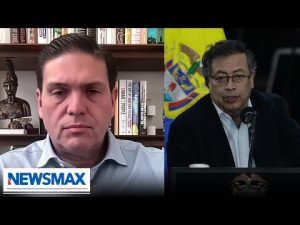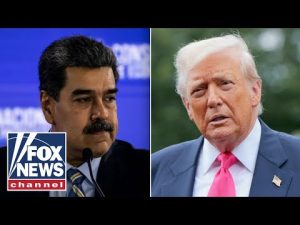**The Biden-Pardoning Controversy: A Presidential Family Matter?**
In a twist that seems straight out of a soap opera, recent events surrounding President Biden’s son, Hunter, have stirred quite the pot in Washington, D.C. As Hunter finds himself embroiled in serious legal battles, the President has made headlines for his unwavering insistence that he would not pardon his son, should he be convicted. This declaration, however, has become more face-palm inducing with the political ramifications and the whirlwind of responses it has generated.
During a press briefing, a White House spokesperson was put in the hot seat by relentless reporters, clamoring to confirm the President’s steadfast “no” on the possibility of pardoning Hunter. This was met with repeated affirmation, making it sound more like a simple game of “Simon Says” than serious jurisprudence. Meanwhile, in the backdrop of the sprightly exchange, the phrase “burden of familial loyalty” hung heavily in the air, as the specter of potential convictions loomed close. It almost felt like a scene out of a courtroom drama, where the stakes couldn’t be higher.
Amidst this political circus, Biden expressed an abundance of pride in Hunter’s resilience, highlighting his son’s struggle against addiction. Yet, despite what fatherly love and pride might suggest, many are left scratching their heads about the disparity in legal treatment seen here. Critics argue that Hunter’s case hints at a biased judicial system, where the son of a powerful president could receive preferential treatment. It raises an eyebrow: Is it possible for a family to be above the law?
The community is undoubtedly divided. Biden staunchly claimed that his son’s prosecution is reflective of raw politics, implying that Hunter is merely a pawn in a larger game of chess between political adversaries. His statements have ignited a flurry of responses from both sides, where supporters nod in agreement, while opponents throw their hands up in disbelief. The fact that Biden insisted on allowing the judicial system to run its course leaves some concluding that perhaps the selective justice narrative is not as far-fetched as it sounds.
As this saga unfolds, it’s hard not to speculate about the impact on future political tides. Some observers draw comparisons to former President Trump’s insistence on pardoning individuals connected to January 6th, a situation that has been similarly fraught with complexities and political motivations. As legal proceedings press forward with Hunter’s upcoming sentencing on gun charges, it begs the question: Will this truly be a turning point for Biden, or simply another event to add to the ever-growing list of “What Could Have Been”?
In conclusion, the Biden family saga illuminates the vast complexities of justice in the political arena. As the world watches, one can’t help but wonder if Hunter’s trial will bring about meaningful discussions on equality before the law, or if it will simply be swept under the proverbial rug, adding fuel to the fires of partisanship. As the notorious saying goes, “It must be good to be the president’s son,” yet advocates for justice and fairness might argue that every citizen should be treated equally, regardless of family ties. Only time will tell how this narrative will affect the Biden administration and the broader American landscape.







